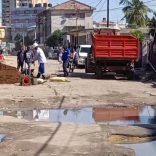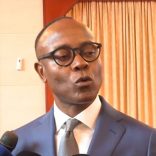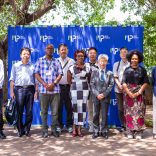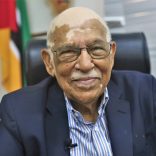Mozambique to cut direct defence budget by 35% in 2025
Mozambique: Poverty increases in areas of large investments

Picture: DW
A report by the Rural Environment Observatory notes increasing poverty in Mozambique, particularly in the northern provinces known for huge investments in the extractive industries and agribusiness.
The Rural Environment Observatory states that, while the latest household budget survey showed a slight reduction in the percentage of poverty at national level, data show an increase in the number of poor, and in social and regional inequality.
The “Poverty, inequalities and development models” study presented by the Observatory at the conference in Maputo also points to an increase in poverty in the northern provinces in areas known for large investments in the extractive sector and agribusiness, further noting that the capital intensive investment characteristic of mining and quarrying has a limited effect on job creation.
“There are clear indicators that show that the population is not living any better,” Observatory director João Mosca says. “Contributing to this are issues of land occupation and resettlement, generally to remote, less fertile areas with less access to services and transport, although things may be improving in some places.”
João Mosca argues that the government has a responsibility to ensure that resettlement and land laws are enforced, and that agriculture is prioritised, while civil society and citizens themselves must present complaints when their rights are negatively affected.
“The population grows, even as fewer emerge from poverty”

The data for 2014 and 2015 released during the conference indicate that multidimensional poverty at national level was 53%, with a higher incidence in rural areas: 70% compared to 17% in urban areas.
According to Vasco Nhabinde of the Ministry of Finance, “the message here is that we need to improve the allocation of resources to those things which impact people’s lives the most. That is, education, health and housing”.
João Mosca observes that, although the percentage of those poor declined in the country, the number of poor people increased. In addition, there are large differences between rural and urban areas, and between the north, centre and south of the country.
Several factors contribute to poverty and its evolution, Mosca says, citing the fragility of state structures, weaknesses in civil society, citizenship, business sector, relations between internal and external capital companies.
The Director of OMR points out that the fragility of the state is manifested, among others, in the difficulty in of adopting, monitoring and enforcing laws, mechanisms for dialogue with society, the types of contracts closed with multinationals, the type of policies approved for combating poverty and for the country to take full advantage of its resources.
“We are in a growth phase, but we are still very fragile,” he concludes.












Leave a Reply
Be the First to Comment!
You must be logged in to post a comment.
You must be logged in to post a comment.